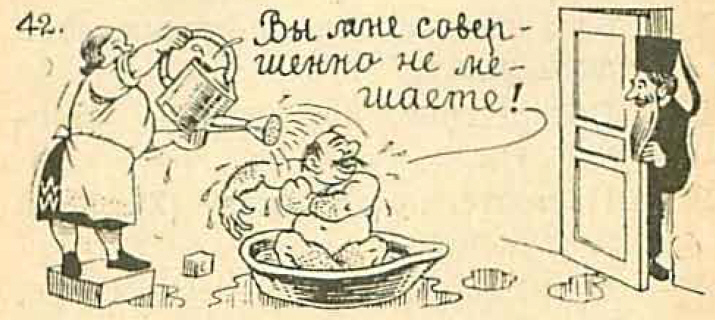|
REVISION AND NOTES |
|
|
|
AK-NOTES |
|
1 Russian verbs classification is really beyond this book,
we'll try to make some sense of them after it, in 3-rd section of this
course.
For now, I'll just note that
▪ идти,
"to go" (when meaning "to walk, to move" etc.) is equivalent to
ходить, and
they are verbs 1) of action, 2) continuous or (progressive), 3) general
idea of present time
▪ пойти,
"to go somewhere" is a verb 1) of action, 2) general idea of
future time
▪ сходить,
"to visit some place and return back" is a verb 1) of action, 2)
general idea of 'completedness", completed action
Compare сходить
with спрыгнуть,
which has similar structure (prefix
с-);
спрыгнуть,
"to jump down", has distinct feeling of
"finalized", irreversible action, like in
я спрыгнул, I jumped down.
As they say in the original book, don't be disgusted with it! |
|
|
|
2 Do not look at the complete declension in the grammatical
appendix, page (402).
It's just a headache generator. |
|
|
|
[ORIGINAL BOOK] |
|
1 Verbs are still a little mysterious for us and the moment
has not yet come to study them in detail.
The Russian conjugation is different from the English. Russian verbs go
by pairs; each of the two has only a part of the English tenses, and
each completes the other.
E.g., идти and пойти both
mean : to go.
But the former gives : я иду, I go, and the
latter : я пойду, I shall go.
- Likewise : я смотрю, I look, and :
я посмотрю, I shall look.
We shall see later on that there many shades of meaning in the use of
these two classes of verbs, called imperfective or incomplete verbs, and
perfective or complete verbs.
But, until our "second wave", which will start from less. 57, we need
not know anything more about it. |
|
|
|
2 Let us come hack to the endings of adjectives :
прекрасный, beautiful, splendid.
маленький, small, большой,
large, big
We see three classes, in ый, ий and
ой.
Feminine :
прекрасная, she-beautiful.
маленькая, she-small
большая, she-large, big.
Neuter :
прекрасное, it-beautiful
маленькое, it-small
большое, it-large, big
See now the complete declension in the grammatical
appendix, page (402).
Merely read these tables, and don't try to learn them by heart.
You will come back to them now and then, and in the long run, with the
help of the daily lessons, you will assimilate them. |
|
|
|
3 Prepositions govern different "cases".
Thus : без,without;
для, for;
до, until;
из, out of;
от, from;
у, at, neat, with;
после, after,
are always followed by the genitive. |
|
к or ко,
towards,
by the dative.
через, by, through,
by the accusative.
при, near, beside, by the prepositional. |
|
On the other hand :
в or во, in (into);
на, on (on to) ;
о or обо or
обо, against,
are followed by the accusative if there is an idea of change
of place, and if not, by the prepositional.
за, behind or for;
перед, before, in front of;
под, under,
by the accusative or instrumental.
с or со,, with :
instrumental ;
but с or со, since, from :
genitive.
по, on, after, on account of, by the accusative,
dative, or prepositional. |
|
|
|
4 Час, hour. Часы,
the hours or the watch.
Который час? What time is it?
- В котором часу? Al what time?
— В три часа, at 3 o'clock.
— В пять часов, at jive o'clock.
Why this difference? Because up to 4, numbers are followed by the
genitive singular, and from 5 on, by the genitive plural.
Thus : месяц, month. Два месяца,
три месяца, четыре месяца ;
but : пять месяцев, шесть месяцев, etc...;
and сколько месяцев, , how many [ofJ months?
- Likewise : один день, два дня, три дня, пять дней;
несколько дней, a few days.
For the year, the word itself changes according to the number :
один год, one year; два, три,
четыре года, 2, 3, 4 years.
— But : пять, шесть лет, 5, б years.
Сколько лет? How many years? |

